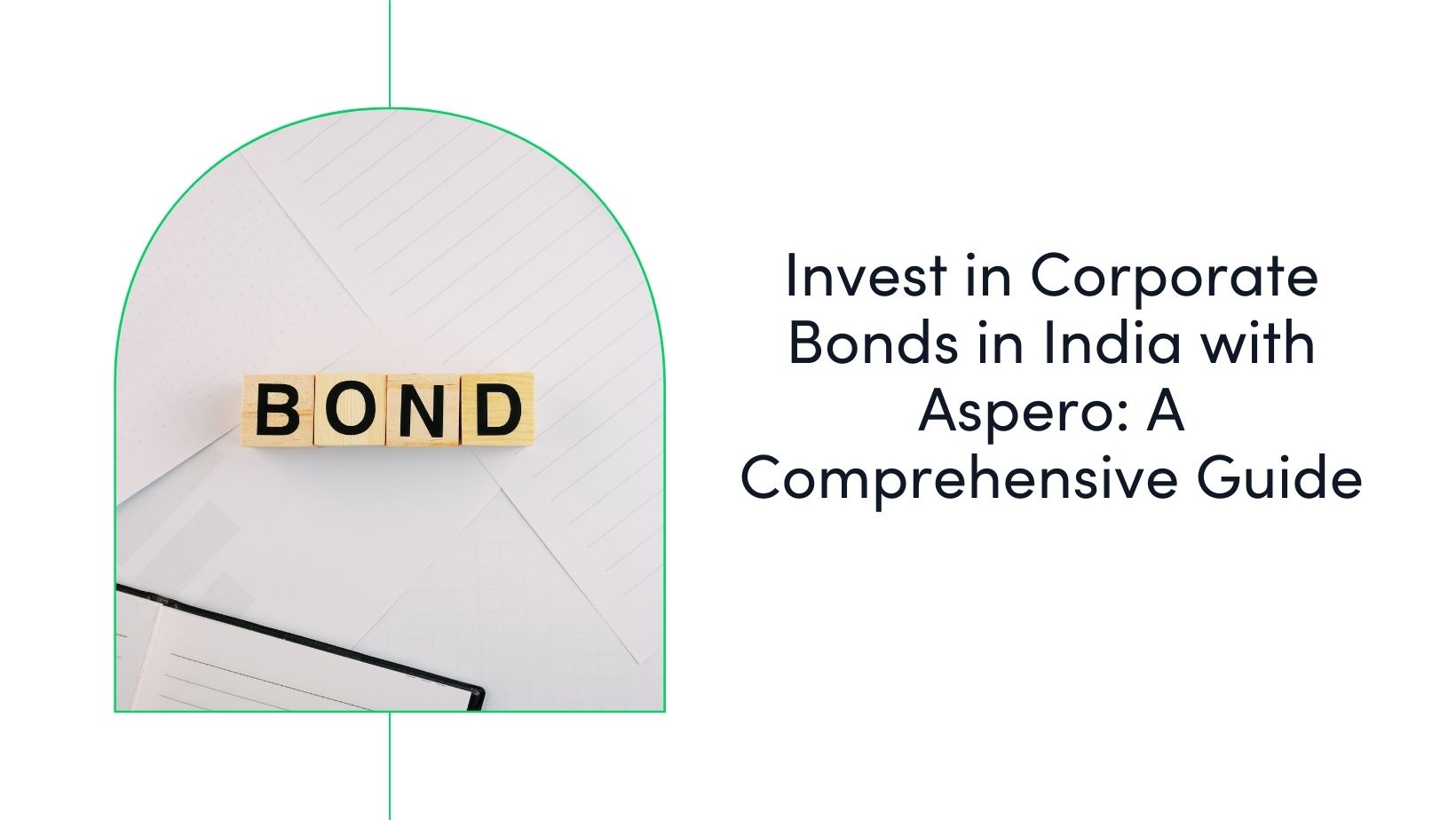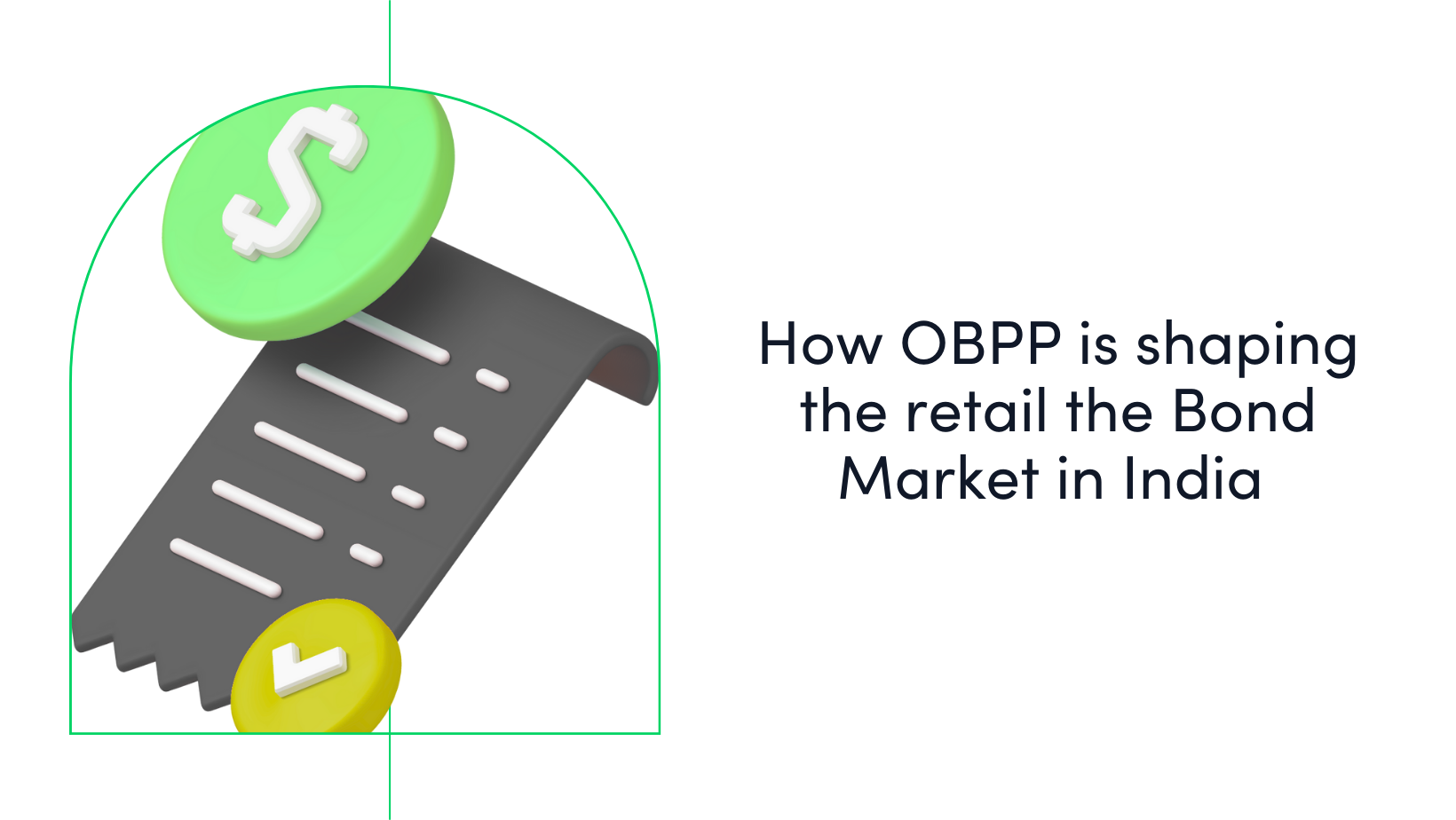Earn 9%–15% on Senior Secured Bonds.
Lower risk. Fixed returns. Start investing on Aspero with just ₹10,000.
Explore Bonds


Curious about investing in corporate bonds in India? Keep reading to get a comprehensive view of different types of bonds available, how to evaluate and invest in these bonds.
What are Corporate Bonds?
Corporate bonds are debt securities issued by companies to raise capital. These bonds are essentially a loan from investors to the company, which agrees to pay back the principal amount on a specified maturity date along with periodic interest payments. Unlike equity, which represents ownership in a company, corporate bonds are a form of debt, making bondholders creditors rather than owners.
Investors purchase corporate bonds to earn interest income and preserve capital. Companies issue these bonds to fund various projects, refinance debt, or manage working capital. The interest rates on corporate bonds are typically higher than those on government bonds due to the higher risk associated with corporate issuers.
Listed vs Unlisted Bonds
Corporate bonds in India can be categorized into listed and unlisted bonds. Listed bonds are traded on stock exchanges, providing transparency and liquidity. These bonds undergo strict regulatory scrutiny and offer regular price updates, making it easier for investors to track their investments.
Unlisted bonds, on the other hand, are not traded on exchanges. They are typically sold through private placements and are less liquid compared to listed bonds. While unlisted bonds might offer higher yields due to their illiquidity, they come with higher risks, including reduced transparency and difficulty in selling before maturity.
How do Corporate Bonds in India Compare to FDs?
Fixed Deposits (FDs) are a popular investment choice in India due to their safety and guaranteed returns. However, corporate bonds can offer several advantages over FDs:
- Higher Returns: Corporate bonds generally offer higher interest rates compared to FDs, compensating for the higher risk associated with them.
- Tax Efficiency: Interest from corporate bonds may be taxed differently compared to FDs, potentially offering better post-tax returns.
- Liquidity: Listed corporate bonds can be traded on stock exchanges, providing liquidity, whereas FDs typically lock in the investor’s money until maturity.
- Diversification: Investing in a variety of corporate bonds can help diversify an investment portfolio, reducing overall risk.

corporate bonds in india vs fds
How to Invest in Corporate Bonds in India?
Investing in corporate bonds in India can be done through several platforms, including Over-the-Counter Bond Platforms (OBPPs). Examples of OBPPs include NSE (National Stock Exchange) Bond Platform and BSE (Bombay Stock Exchange) Bond Platform, where investors can buy and sell corporate bonds directly.
To start investing in corporate bonds, one can also use Aspero, a user-friendly platform designed to simplify bond investments. Here’s a step-by-step guide to sign up on Aspero:
- Head over to invest.aspero.in or download the Aspero app from the Google Play Store or App Store
- Enter your mobile number and verify your OTP to complete the sign up process
- Start your KYC journey by verifying your email, PAN, address, Demat account and Bank Details. This process should take roughly 3-4 minutes and no document upload is required via our CKYC journey.
- If all your details are filled correctly, your KYC verification will be complete within 24 hours and you are all set to invest in corporate bonds in India!
Aspero provides a seamless investment experience with a wide range of bonds, real-time data, and expert insights to help investors make informed decisions.
How to Evaluate Corporate Bonds in India? Factors to Consider
Evaluating corporate bonds requires analyzing several factors to assess their risk and return potential:
- Credit Rating: Independent rating agencies like CRISIL, ICRA, and CARE rate corporate bonds based on the issuing company’s creditworthiness. Higher-rated bonds (AAA, AA) are safer but offer lower returns, while lower-rated bonds offer higher returns but come with higher risk.
- Interest Rate: Compare the bond’s coupon rate with current market rates. A higher coupon rate may indicate higher returns but could also reflect higher risk.
- Maturity Period: The bond’s maturity period affects its interest rate risk and liquidity. Longer maturity bonds might offer higher returns but come with greater interest rate risk.
- Issuer’s Financial Health: Evaluate the issuer’s financial statements, profitability, and debt levels. A financially stable company is less likely to default on its bond payments.
- Yield to Maturity (YTM): YTM is a comprehensive measure that considers the bond’s current price, coupon payments, and time to maturity, helping investors compare bonds with different characteristics.
If you’re new to bond investing, refer to this article to get a beginners guide to investing in corporate bonds in India
Different Corporate Bonds in India Available to Invest In
Here are a few examples of corporate bonds available for investment in India:
- Vivriti Capital NCD: This A rated bond by Vivriti Capital offers a yield of up to 10% with remaining tenor of under 12 months.
- Aye Finance NCD: This premium listed NCD offered by Aye Finance, a fast growing NBFC, offers a yield of up to 11.7% with a minimum investment of just INR 1L.
- Earlysalary (Fibe) NCD: This BBB+ rated bond offers high yield up to 12.8%, maturing in August of 2025, making it a great short term investment option for someone looking for significant returns over their current FDs, making their foray into corporate bonds in India.
- Tata Steel Ltd. Bonds: Tata Steel’s bonds are known for offering attractive yields while maintaining a reasonable level of risk.
- L&T Finance Holdings Bonds: These bonds are favored for their good credit ratings and reliable returns, making them suitable for conservative investors.
Conclusion
Corporate bonds in India present a compelling investment opportunity for those seeking higher returns compared to traditional savings options like FDs. By understanding the differences between listed and unlisted bonds, evaluating key factors, and using platforms like Aspero, investors can navigate the corporate bond market effectively. Aspero’s intuitive interface and robust support make it an excellent choice for both novice and seasoned investors looking to diversify their portfolios with corporate bonds.
Investing in corporate bonds requires careful analysis and due diligence. However, with the right approach and tools, investors can enjoy the benefits of regular income and capital preservation, making corporate bonds a valuable addition to any investment strategy. Whether you are looking to invest in bonds from well-known companies like Reliance Industries and HDFC or exploring other high-yield options, the corporate bond market in India offers a range of opportunities to suit different investment goals.
Get started with your bond investment journey on Aspero – sign up today









